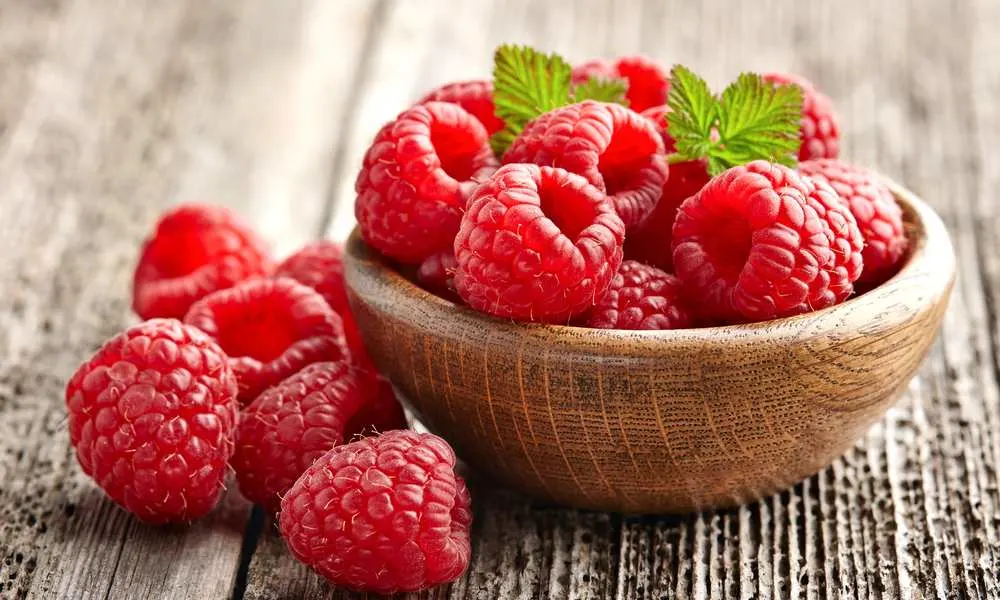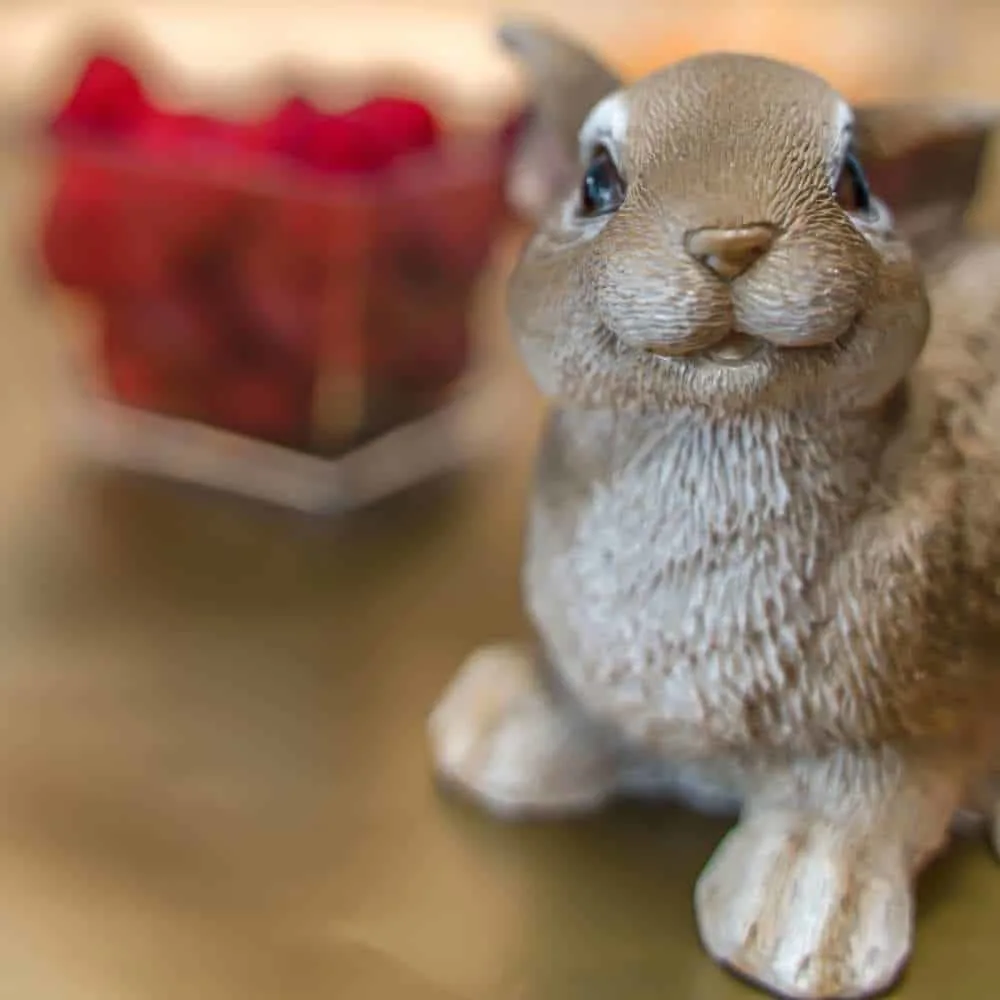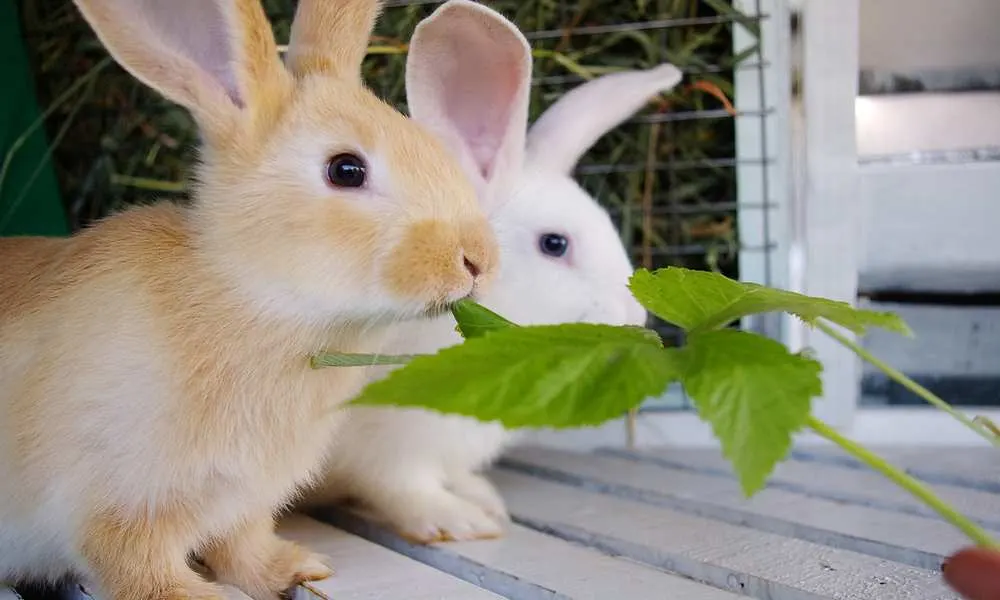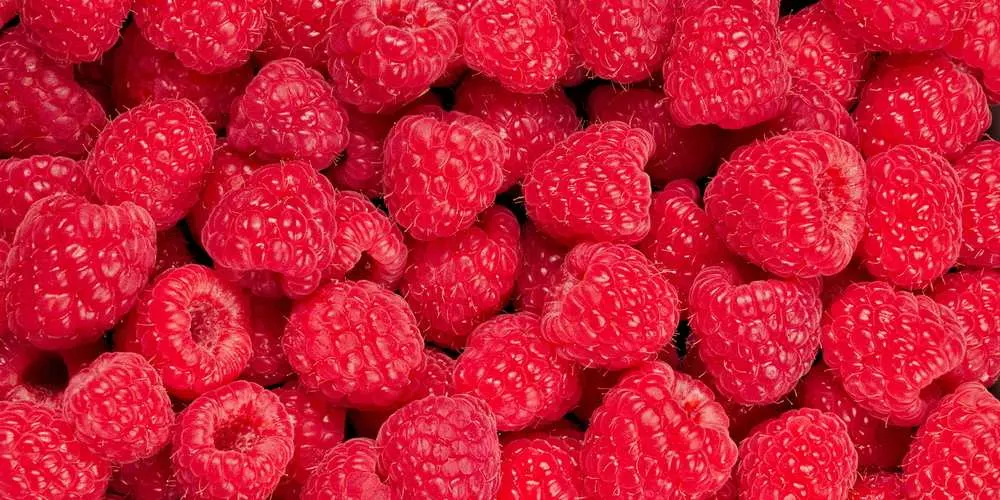If you’ve ever enjoyed raspberries during the summer, you’ve probably thought about sharing them with your rabbit once or twice.
If this is the case, you’re in luck because it’s perfectly fine to do this!
Nevertheless, there are some things that you’ll need to inform yourself about before you do this – how to wash them, how much to give to your pet and how to pick out the best ones for them.
More on that later, as well as some tips & tricks on how to implement raspberries in your rabbit’s diet.
For a complete guide that leads to the maximum enjoyment of this sweet but sour fruit, I suggest you keep reading and take some notes!

Raspberries – Nutritional Facts
Like with any other food, it’s recommended that you educate yourself on the contents of it, to better understand what you’re getting inside your body (or your rabbit’s body in this example), and the same goes for raspberries.
These low-calorie bite-sized pieces of heaven are not only low in calories but full of nutritional elements such as vitamins and minerals. In order to better understand what can be found in raspberries, check the main ingredients found in them:
| INGREDIENTS | NUTRITIONAL VALUE |
|---|---|
| Energy | 64 kcal |
| Fiber | 8 g |
| Protein | 1,5 g |
| Fat | 0,8 g |
| Carbohydrates | 14,7 g |
| Vitamin C | 54% RDI |
| Vitamin E | 5% RDI |
| Vitamin K | 12% RDI |
| Iron | 5% RDI |
| Potassium | 5% RDI |
| Magnesium | 7% RDI |
*RDI – Recommended Daily Intake
As you can clearly see from this data, nothing that is found in raspberries can be classified as bad for any living being.
High doses of every component desirable make a match made in heaven between raspberries and your rabbit. These are some good news, taking into consideration that rabbits can be picky with their food from time to time, and raspberries will probably become one of their favorite things to nibble on.
Some of these components that really impressed me are:
- Calories: Regardless of raspberries being sweet, they don’t contain as many calories as someone might imagine. Only 64 Calories can be found in one full cup! This is amazing when you take into consideration that you won’t give your rabbit the full cup, but maybe half a handful. This means that calories only go down, which is a fantastic thing,
- Carbohydrates: Many people think of carbohydrates as something bad. In this case that couldn’t be farther from the truth. When referring to carbohydrates in raspberries I’m talking about natural sugar that’s found in this amazing fruit. If 123 grams of it contains around 14,7 grams, that means one raspberry contains around 0,474 grams of carbohydrates, which is practically nothing.
- Vitamin C: The recognizable sour taste of the raspberry comes from the high amount of Vitamin C. This fruit is not comparable to the majority of other fruit that you can feed to your rabbit when talking about vitamin c. Raspberries take the gold without any question. If you decide to feed your pet with these, you won’t have to worry about their daily intake of this vitamin.
- Fiber: As a rabbit owner, I know how important fiber is in your pet’s diet. This is due to its role in digestive regulation and regular and healthy stool. The amount found in raspberries will take care of the majority of the daily fiber intake that your rabbit needs.
These are just some of the contents of raspberries that left the biggest impression on me personally. You can tell just by these couples that I’ve listed that this fruit virtually has no downsides (this might not be true in all cases, but more on that later).
Keep in mind that it’s hard to find rabbit pellets that completely meet your rabbit’s daily diet requirements. Additions such as raspberries can take care of that the natural way.

How To Serve Raspberries To Your Rabbits?
What I would recommend, before I start talking about how to prepare raspberries, is to find someone who sells organic raspberries. This can make a world of difference in your and your rabbit’s diet.
If you can’t find any organic raspberries, the ones that you find in a market are probably almost as good as the organic ones so don’t stress about it.
Now, let’s get started:
- Wash them thoroughly – you shouldn’t skip this step even if the raspberries are organic. You never know what chemicals your food has come into contact with so it’s better to be safe than sorry!
- Remove any squishy berries from the bunch – these can often have an unpleasant rotting taste to them so I suggest getting rid of them.
- Slice them into halves – this can make it easier for your rabbit to absolutely devour them. You can also just tear them into two similar-sized halves.
- Leave them at room temperature – if you serve them cold to your pet, it can hurt its throat and tummy. The safest option is to just let them sit for 20 minutes on the kitchen counter.
If you follow these few easy steps, you can’t make a mistake in feeding your rabbit this fruit. Even if a squishy raspberry or two get into the bunch you don’t have to worry – they’re completely harmless (they just taste bad).
What I like to do is to hand feed them this delightful summer treat. By doing this you strengthen the relationship between you and your pet. If you do this often, it will associate you with this tasty fruit, and as a result that your pet will be happier than ever every time it sees you approaching with a hand full of these pink berries.
If you don’t have the time to do this, and just want to implement raspberries into your pet’s diet just for the nutritional value, I recommend mashing them up with a fork and mixing them up with the pellets once or twice a week. If you think you lose on some nutritional value of raspberries by mashing them – that’s not true. Just make sure that you get all the juice into the pellets.
Can Rabbits Eat Raspberry Leaves?
They absolutely can – raspberry leaves are fantastic greeny nibbling objects that your rabbit can munch on. They don’t contain many calories and are full of vitamins B and C, and have zinc and magnesium in them as well.
I love to give them some raspberry leaves from time to time just to keep them busy between meals. There’s no harm in this, and it can even be beneficial. If your rabbit is overweight, you can trick it to eat less by giving it some of the leaves just to fill its tummy up so it feels full quicker.
You can always add some of the raspberry leaves into your rabbit’s cage and watch it nibble on them. This makes for some great photos!

Raspberries – Any Risks?
It’s natural to ask yourself if certain foods carry a certain risk with them. But, when talking about raspberries this question is completely unnecessary. As you saw from the beginning of the article, everything that is found in this fruit is perfectly safe.
But, there are a few things you need to keep your eye out on. The first is that your pet might experience some diarrhea from the excess amount of vitamin C. This also happens to humans as well so there’s nothing serious that can come from this. If your rabbit goes overboard with the berries, just make sure you feed it lots of fiber-rich food to regulate the stool.
The second thing is that you need to pay close attention to your rabbit’s sugar tolerance. This is an individual characteristic, and every rabbit has a different sugar tolerance meaning you can’t just implement something you’ve read online to your pet.
If you see some excess energy in your rabbit’s behavior not long after it eats raspberries, you need to bring the quantity down. Try feeding it two times a week a tablespoon or so of raspberries. If this doesn’t help – try it once a week.

Can Rabbits Eat Raspberries? – Let’s Sum It Up!
Regardless of if you enjoy these sour but sweet fruits in the summer, you should give your rabbit a chance to try this fantastic and nutrient food. There’s a high possibility that it’ll develop a liking towards it and that raspberries will become your rabbit’s favorite summer snack.
So in order to keep your pet healthy and well-fed, I suggest you grab some raspberries with leaves and watch your pet go to town on them – or maybe even better, try growing a bush of raspberries in your backyard, maybe you won’t have to make a trip for them next summer!

